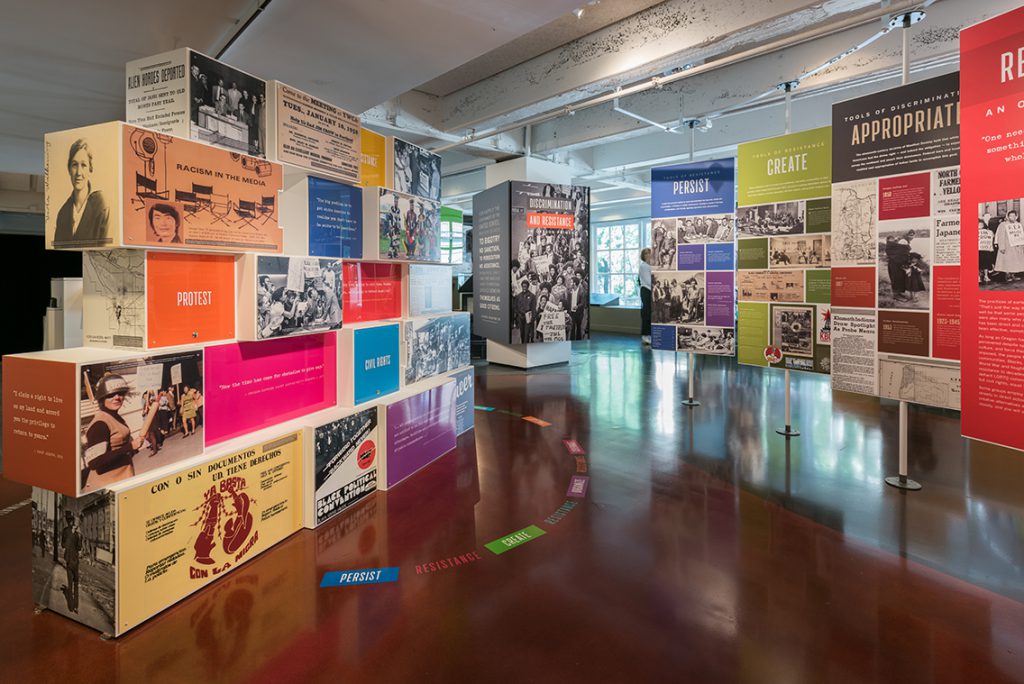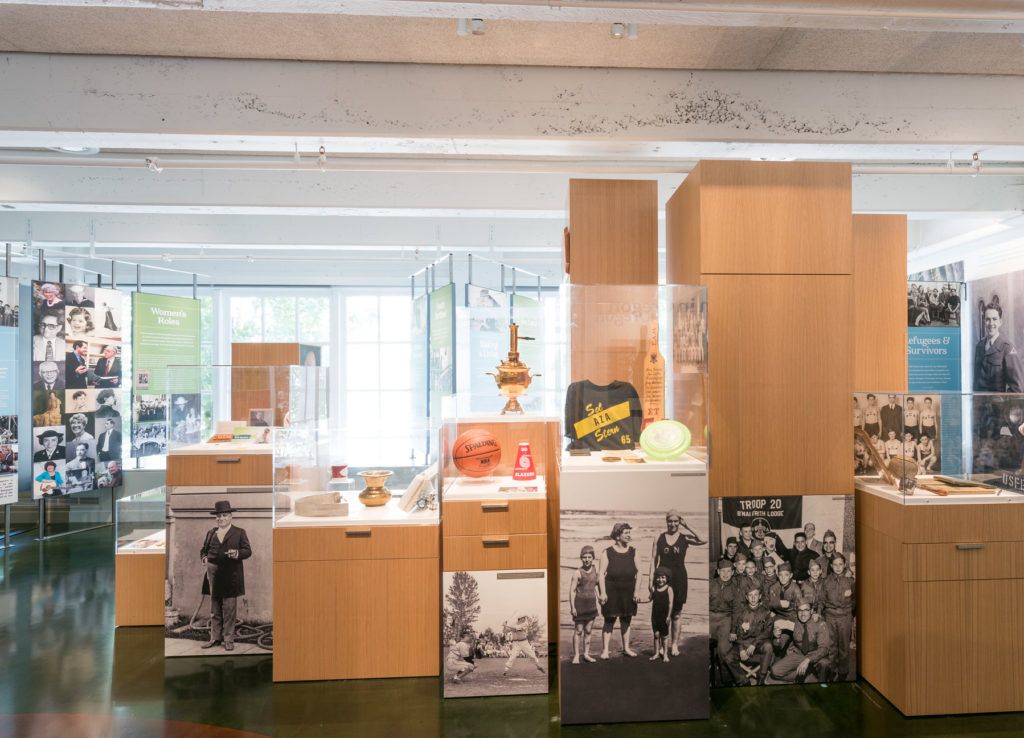This week we highlight OJMCHE’s digital experiences.
You know that book, song, piece of artwork, etc that every time you look at or listen to you notice something new or interesting? That’s how I think about our digital experiences. They are resources you can come back to and examine through a new lens.
Our digital experiences were designed to mirror our physical exhibitions, allowing educators and students who are unable to visit the museum access to the content or classes who have come to the museum the opportunity to revisit the exhibitions. The digital experiences are free to request and access is provided for an entire school year so you can revisit the experience throughout a course or share it with classes in different semesters. Further, each digital experience is accompanied by an educators guide that includes relevant social science standards and suggested activities.
Below is an overview of the two digital experiences that are currently available and suggested ways to approach them.
Discrimination and Resistance, An Oregon Primer
Geared towards grades 6 – 12
 In this digital experience, students “weave” through a hyperlinked Google Slides deck to explore the dynamic relationship between discrimination and resistance throughout Oregon’s history. OJMCHE’s framework of “tools of discrimination” and “tools of resistance” provide students with tangible and accessible vocabulary to describe how historically marginalized groups have been targeted and the methods they, and their allies, have used to counter oppression.
In this digital experience, students “weave” through a hyperlinked Google Slides deck to explore the dynamic relationship between discrimination and resistance throughout Oregon’s history. OJMCHE’s framework of “tools of discrimination” and “tools of resistance” provide students with tangible and accessible vocabulary to describe how historically marginalized groups have been targeted and the methods they, and their allies, have used to counter oppression.
- One way to approach the resource is to focus on specific tools of discrimination or resistance. In this way, students can observe how each tool has been employed by or against different groups of people. This encourages students to question how discrimination works outside of any particular issue or group and find the commonalities in instituting and perpetuating discrimination, as well as the many ways to resist.
- Another approach is to have students explore how the tools intersect with each other as they identify and analyze the nature of systemic oppression on specific historically marginalized groups and how they pursue justice and equality. This framework is particularly useful for months that honor historically marginalized communities as we acknowledge the struggle, hardship, and oppression, as well as celebrate the achievements and contributions to Oregon.
- Finally, you may want to approach the digital experience through specific themes such as race and power, identity and privilege, and resistance and responsibility.
Oregon Jewish Stories
Geared towards grades 4 – 12
 Oregon Jewish Stories provides students the opportunity to learn about the rich, unique, and complex history of Oregon Jews, examine how it is integral to the larger history of Oregon, and consider how identities are shaped and evolve over time. One way to combat antisemtism and violence against Jewish people is to talk and teach about the vitality and depth of Jewish life and culture beyond the Holocaust. Perfect for state history, ethnic studies, or Holocaust units or courses, this digital experience can be approached and unpacked through themes such as migration and settlement patterns, community building, belonging and the intersection and evolution of personal and group identities, and power as it relates to system oppression and social justice.
Oregon Jewish Stories provides students the opportunity to learn about the rich, unique, and complex history of Oregon Jews, examine how it is integral to the larger history of Oregon, and consider how identities are shaped and evolve over time. One way to combat antisemtism and violence against Jewish people is to talk and teach about the vitality and depth of Jewish life and culture beyond the Holocaust. Perfect for state history, ethnic studies, or Holocaust units or courses, this digital experience can be approached and unpacked through themes such as migration and settlement patterns, community building, belonging and the intersection and evolution of personal and group identities, and power as it relates to system oppression and social justice.
This post was originally in an email on January 31 to educators from Amanda Coven, Director of Education.
